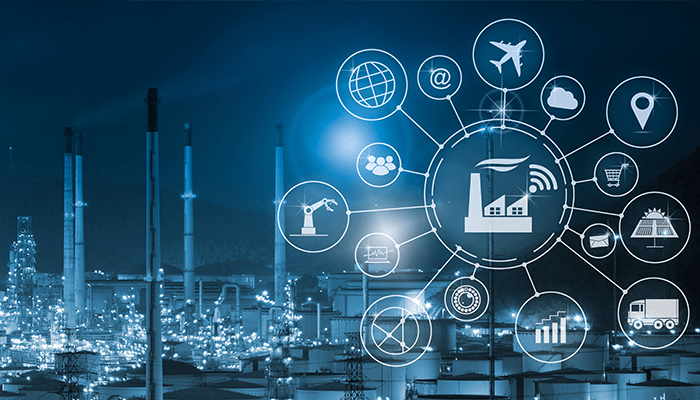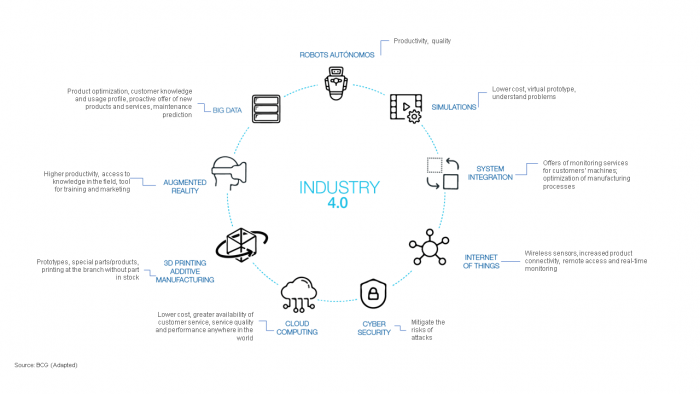ກ່ຽວກັບ
ຜະລິດຕະພັນ
sản phẩmĐặc biệt hiện nay chúng tôi là đại diện phân phối, bán hàng, bảo hành sản phẩm của các thương hiệu nổi tiếng trên thế giới Dự án
Dự ánວິທີແກ້ໄຂ
ສະຫນັບສະຫນູນ
Thành Viên
Đăng nhập
Are you familiar with Industry 4.0 and its original concept?

The term “Industry 4.0” was first publicly introduced at the Hannover Fair in 2011 as “Industrie 4.0” by a group of representatives from different fields (such as business, politics, and academic) under an initiative to enhance the German competitiveness in the manufacturing industry. The German federal government then adopted the idea in its High-Tech Strategy Project.
The Smart Factory represents a step forward from more traditional automation to a fully connected and flexible system. Smart Manufacturing has been defined as the fully-integrated, collaborative manufacturing systems that respond in real time to meet changing demands and conditions in the factory, in the supply network, and in customer needs. Smart Industry is a synonym for Industry 4.0 or Industrial Transformation in the fourth industrial revolution, allowing results never seen before.
Smart Factory is a production solution in a flexible and efficient way to meet the needs of today's market, and achieves integration between the various industrial and non-industrial partners who build dynamic, and very often virtual organizations. This type of integration, linking the physical components of the production system and digital, abstract, virtual components into a single system, is called Cyber-Physical Systems.
In the manufacturing environment, these Cyber-Physical Systems comprise smart machines, storage systems, and production facilities capable of autonomously exchanging information, triggering actions and controlling each other independently. In other words, an optimized Smart Factory allows operations to be executed with minimal manual intervention and high reliability. The automated workflows, synchronization of assets, improved tracking and scheduling, and optimized energy consumption inherent in the smart factory can increase efficiency, uptime, and quality, as well as reduce costs and waste.
In a proactive system, employees and systems can anticipate and act before issues or challenges arise, rather than simply reacting to them after they occur. This feature can include identifying anomalies, restocking and replenishing inventory, identifying and predictively addressing quality issues, and monitoring safety and maintenance concerns.

Industry 4.0 refers to the exciting area of automation within the manufacturing process including IOT, robotics, sensors, cloud computing, integrated systems, and data management, pointing out to a scenario of advantages and opportunities, even for small and medium-size industries. With such availability of technologies it is up to the companies to start the migration process, turning challenges into opportunities by means of planned and strategic investments within this new industrial model.